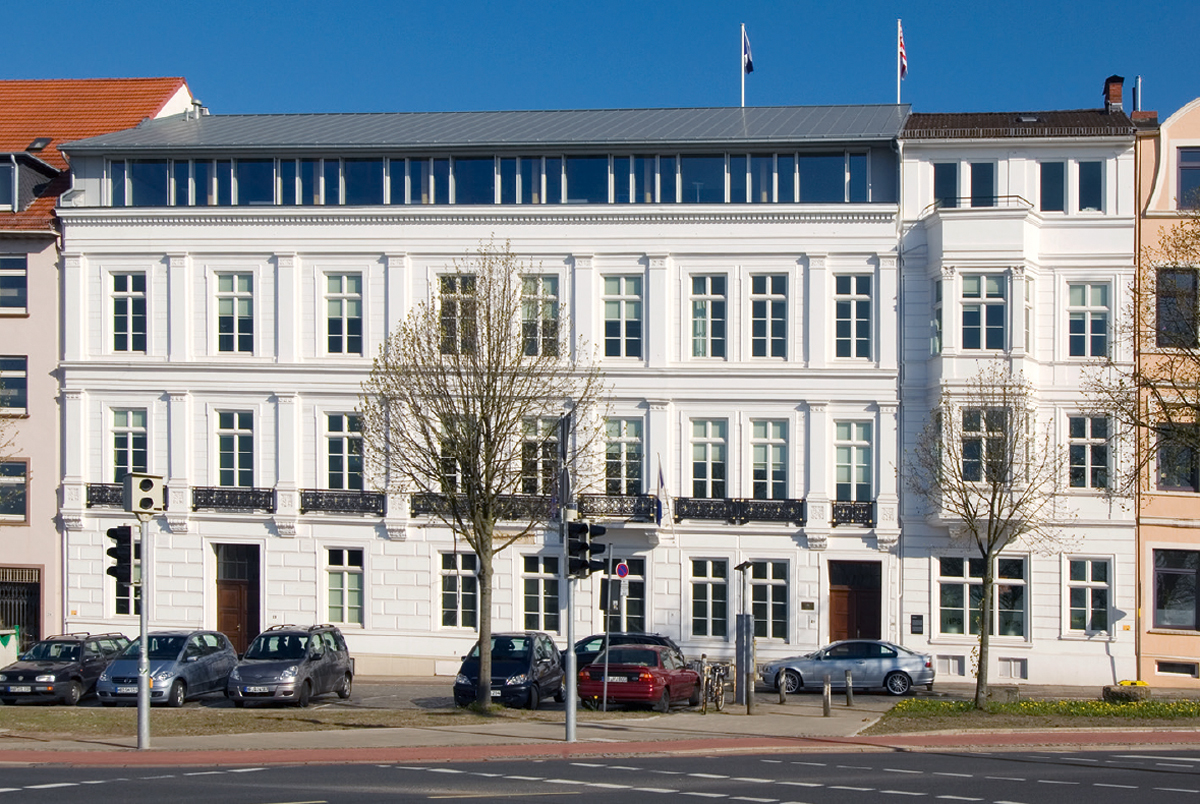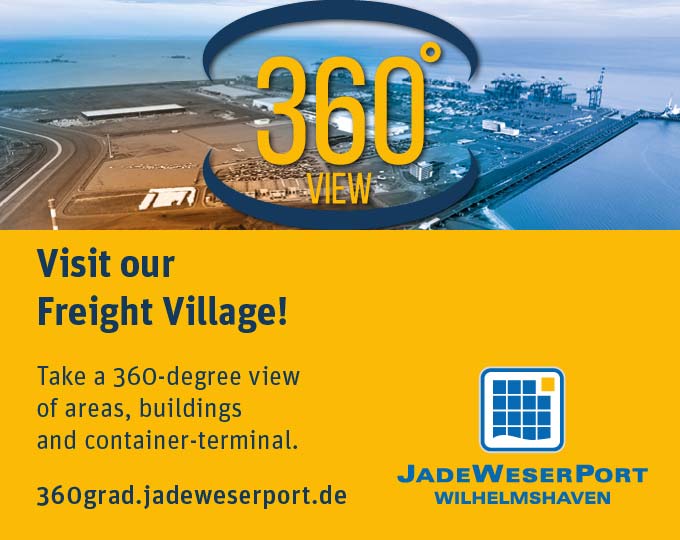Based in Bremen, the F. A. Vinnen & Co. shipping specialist has often had to navigate turbulent times over the past seven generations. In an interview with LOGISTICS PILOT, the managing director and owner, Michael Vinnen, explains how the medium-sized company does just that.
Examples include the transition from wooden to steel ships and the evolution from sailing to steam and then motorised vessels. Post-war shipping resumed in 1955, launching an era in which ships were leased to large shipping lines. Since the 1980s, market leaders such as Maersk, CMA, MSC and Hapag-Lloyd have tended to lease container ships. But a new field of business arrived on the scene in 2011, with the operation of ships owned by third parties.
Michael Vinnen has managed Bremen’s oldest shipping company in the seventh generation since 2001 – and in partnership with Managing Director Bernd Hein since 2007. Besides business operations, navigation and technical aspects, nautical officer Hein is also in charge of insurance, shipping operations and human resources, whilst economist Vinnen is responsible for projects, general and time charters, and finances, always maintaining a clear overview of the latter. “We were more reserved as a limited partnership (Kommanditgesellschaft), which protected us during the shipping crisis.”
Nothing is possible without a market niche
But even after those twelve years, during which the German fleet suffered significantly, there were more major challenges to come, including the trend towards consolidation among container shipping companies. However, this did not extend to shipowners. At that time, the shipping company owned or operated nine container ships between 2,600 and 5,000 TEU for a total capacity of 40,000 TEU, which was sufficient. “The conditions in ship management have always been complex,” emphasises Vinnen. “Everyone has to find their market niche.”
The shipping company, too, earned well from 2020 to 2022 and, in response to the enormous demand for capacities, had to choose between selling the ships at high prices or leasing them for several years at profitable freight rates. “We opted for the latter, which meant that many ships were leased into the next year and even beyond,” explains Vinnen.
“The rates collapsed in mid-2022 due to the drop in volume and fell even faster than they had risen,” Vinnen recalls. In contrast, 2023 was a relatively normal year in terms of rates. Due to attacks in the Red Sea, merchant ships have had to take a detour through the Cape of Good Hope since December, increasing the demand for ship capacity and temporarily raising freight and charter rates.
Cascade effect of shipbuilding boom
But Vinnen is sceptical about a further rise in charter rates. “New tonnage will increase existing container tonnage in TEU by another 25 per cent or so over the next three years. But the market is unlikely to grow all that much.” He explains that this will trigger another cascade effect, ultimately resulting in new larger ships replacing smaller ones, which will have an impact on the market for medium-sized to smaller ships.
Vinnen tends to be cautious when it comes to building the company’s own container ships. But second-hand tonnage is something worth considering, at least once the prices here have normalised. However, “many shipping lines such as MSC now purchase their ships themselves. The percentage of charter shipping companies in the total fleet is dropping.” As the charter shipping model requires a sufficiently large market, the bulk segment could be interesting in the future, as there is traditionally more movement there.
Vinnen is generally optimistic about the future of container shipping. “Production locations are shifting, of course, with growth expected in Africa and South America as well as in South and Southeast Asia over the next 20 years.” This is also reflected in all the investments streaming into the ports in these regions.
Transformation in shipping as an enormous undertaking
Environmental requirements will be the next “epochal step”. “Due to uncertainty concerning which fuel will ultimately win out and where it will be available in what quantities and at what prices, there is currently little incentive for a charter shipping company, which needs to be open to all shipping regions, to build new vessels. Maersk can conclude contracts for supplying its ships with fuel at its own ports. We cannot.”
As a result, Vinnen prefers to retrofit existing ships, for which he invests millions. Two ships that are already scheduled for time in the dry dock for class renewal at the end of 2024 will also be equipped with a more efficient propeller, a new bulbous bow and a small auxiliary boiler for operation at the port – all to reduce consumption and thus emissions. In addition, the output of the main engine will be restricted and a silicone-based anti-fouling paint applied to the hull that is designed to limit green cover and the associated frictional resistance.
“All that can reduce fuel consumption by around 20 per cent. It’s good for the environment and increases value in the charter market,” explains Vinnen. Rather than size and tonnage, shipping lines now pay more attention to consumption and demand the corresponding certification. “You need to be able to adapt and read the market,” says Vinnen. There is no secret formula. “We’ve survived because we’ve been moderate in good times and planned for the long term.”(cb)


“You need to be able to adapt and read the market.”
Michael Vinnen has been at the helm of the F.A. Vinnen & Co. shipping company since 2001 and its owner since 2016. He has also been the chairman of the Bremer Rhederverein (Bremen Shipowners’ Association) since 2013.
Facts
The F. A. Vinnen & Co. shipping company
Established: 1797
Area of business: Owner and manager of nine container ships with a combined capacity of 40,000 TEU
Employees: 14 employees in Bremen and ten in Manila, and around 300 sailors






